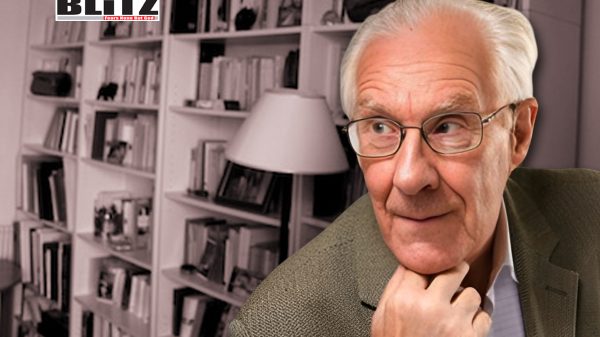Alain Badiou, truth, and the moral permissibility of abortion
- Update Time : Friday, November 21, 2025

Alain Badiou never wrote a treatise on abortion, yet his philosophy provides an illuminating framework for thinking about it. His ideas — truth as universal, the subject as a fidelity to an event, and the communist hypothesis as the name for equality — together offer a striking defense of reproductive freedom. In his view, moral value does not arise from divine command, cultural tradition, or personal preference, but from participation in a truth that has universal meaning. On those terms, the defense of abortion becomes not a question of private “choice,” but of fidelity to a universal truth of equality and emancipation.
For Badiou, ethics begins not with prohibitions or outcomes but with truth-procedures — processes through which new possibilities for thought and action emerge. In Ethics: An Essay on the Understanding of Evil (1993), he argues that a truth is not a relative opinion or moral rule. It is something that breaks into a given situation — an event — and reveals a new universality. When someone remains faithful to that event, insisting on its truth despite opposition, they become a subject.
Truths appear in four domains: art, science, politics, and love. In each, fidelity to the event opens a space where something universally human can take form. The abolition of slavery, the scientific revolution, the emergence of modern art — each was an event that reconfigured what it meant to be human. Ethics, in this sense, is not about obeying laws but about sustaining fidelity to these universal truths once they appear.
From this angle, the question of abortion cannot be reduced to competing interests — the “rights” of the fetus versus the rights of the mother — nor to utilitarian calculations of happiness or pain. The moral question becomes: what truth does this act sustain? Does it affirm a universal process of emancipation, or does it reinforce domination and inequality?
The twentieth century witnessed an enormous event in the Badiouian sense: the entrance of women into full social, political, and intellectual subjectivity. This was not a gradual reform but a rupture in the “state of the situation,” which for centuries had confined women to reproductive and domestic functions. The truth that emerged from that event was simple but revolutionary: women are full subjects of truth, capable of thought, fidelity, and universal participation.
To deny reproductive autonomy — to force women to bear children against their will — is to betray that truth. It re-imposes the old structure that reduced women to biological or religious instruments. Badiou often insists that what defines a truth is its universality: it concerns all people, not a privileged few. The denial of abortion rights marks a relapse into particularism, where women’s bodies are treated as exceptions to equality.
Thus, the moral permissibility of abortion, from a Badiouian view, is not primarily about “choice” in the liberal sense. Badiou distrusts the language of individual rights because it belongs to what he calls the logic of the market: the endless negotiation of preferences. Instead, abortion is defensible as an act of fidelity to the universal event of women’s emancipation — the ongoing truth that no human being’s body is the property of another.
In The Communist Hypothesis (2009), Badiou redefines communism not as a historical regime but as a universal idea: the belief that humanity can live without hierarchies of class, race, or gender — that “there is only one world.” The communist hypothesis names the eternal return of the egalitarian impulse.
Applied to reproductive freedom, this hypothesis challenges the notion that some lives or bodies belong to others — whether to the state, the family, or the church. Control over women’s reproduction is a paradigmatic form of inequality: it transforms the body into property, subordinating one human being’s existence to the will of another. Under the communist hypothesis, such subordination is morally impermissible. To compel birth is to reinstate the very hierarchies — patriarchy, ownership, obedience — that communism seeks to abolish.
Badiou would likely argue that a society faithful to the communist hypothesis must ensure the collective conditions for reproductive freedom: healthcare, equality, education, and social support. The defense of abortion, then, is not a celebration of individual will but a demand that no subject be deprived of equality at the most intimate level — that of the body itself.
Badiou’s ethics is fiercely anti-relativist. In Ethics, he criticizes modern “ethics of human rights” for reducing moral truth to the management of suffering. This humanitarian morality, he says, leaves the existing order intact; it merely seeks to minimize harm. For Badiou, genuine ethics begins where we affirm a truth that transcends comfort and fear — a truth that reorders what counts as possible.
Defending abortion, in this light, is not a matter of balancing goods and evils, or of legislating compassion. It is a fidelity to a truth that has already appeared: that women are equal participants in the universal. To revoke that equality in the name of “life” is to mistake biological potential for moral subjecthood. In Badiou’s ontology, a subject is not simply a living being but a being capable of fidelity — capable of entering into a truth-procedure. The fetus, however sacred its potential, is not yet such a subject; the pregnant woman is. To prioritize the fetus’s biological future over the woman’s active subjectivity is to reverse the moral order of fidelity: it privileges mere being over truth.
In Logics of Worlds (2006), Badiou turns to how truths appear within the world — how they become visible. Every world, he writes, is structured by a system of “counting” — what is recognized and what is excluded. Truths emerge when something previously uncounted becomes visible, when a new form of being-there demands recognition.
Women’s reproductive autonomy has historically been just such an uncounted truth. The patriarchal world “counts” life in terms of property, lineage, and control, but not in terms of subjective equality. The legalization and moral defense of abortion force this uncounted reality — women as autonomous subjects of the universal — into appearance. Abortion, therefore, is not merely a private act; it is part of a broader truth-procedure by which equality becomes visible in the world.
When laws or doctrines restrict abortion, they reassert the old “count” — they restore the world’s hierarchy by rendering the woman invisible again, as if she were not a thinking subject but a vessel. To defend abortion is to refuse that erasure, to affirm the truth of equality against the world’s inertia.
It’s important to stress that for Badiou, moral permissibility does not stem from freedom of choice in the liberal sense. Choice, in his view, belongs to the sphere of the consumer, the market, the individual negotiating among options. Fidelity is something else: the steadfast commitment to a universal process even when it is difficult.
A woman who chooses abortion in fidelity to her equality — in rejection of coercion, shame, or structural domination — acts ethically because she acts in truth. The permissibility of abortion therefore lies not in subjective preference but in whether the act sustains fidelity to the event of emancipation. In contexts where abortion is restricted, stigmatized, or criminalized, the decision to defend or pursue it becomes precisely such an act of fidelity: it resists the forces that would close off the possibility of equality.
From a Badiouian perspective, the politics of abortion belongs to the larger question of how universal truths become embodied. The body is not merely biological; it is a site of appearance where universality takes form. When women assert sovereignty over their reproductive bodies, they are not making a “private” demand but insisting that the universal extend to them fully. Their bodies become the site where equality is tested and affirmed.
That is why Badiou’s communism of the future — the “one world” in which no one is excluded — must include reproductive freedom as part of its universal project. To deny it would be to maintain an inequality at the level of being itself: some bodies counted, others not.
A Badiouian ethics of abortion is not sentimental or permissive; it is austere and principled. It does not ground morality in empathy or rights, but in fidelity to the truth of equality. The defense of abortion is morally permissible because it continues the emancipatory event that declares women equal subjects in the universal. To oppose it is to betray that event — to side with the inertia of the world against the transformative power of truth.
Badiou reminds us that ethics, properly understood, is the courage to “continue” — to persist in truth when the world demands obedience. The politics of the body, and of abortion in particular, is one of the most enduring sites where this courage must be enacted. The question, finally, is not whether abortion is right or wrong in itself, but whether the defense of reproductive freedom remains faithful to the universal principle that animates every true politics: that no human being is subordinate to another, and that equality — like truth — is always worth continuing.












